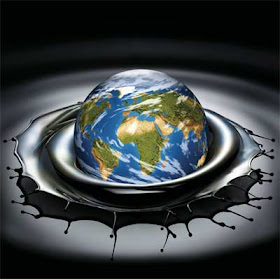Donald Trump never said he would be a recruiting agent for the Islamic State and other jihadist groups. The American people can consider it a bonus for allowing the Great Orange Bloat into the White House.
Scientific American asks, "Is Trump Driving Recruits to ISIS?" The conclusion? Probably.
For starters, consider the fact that, when Trump announced his intention to ban Muslims from the U.S. on the campaign trail, ISIS promptly re-aired the announcement as part of its propaganda offensive. At the time, General James Mattis, now Secretary of Defense, said the proposed ban was “causing us great damage.” ISIS leaders also used news of Trump’s election victory as a rallying cry, celebrating it as heralding “the imminent demise of America.” And, although it is too early to gauge the full reaction to this latest escalation, jihadist groups have already hailed the “blessed ban” as proof the U.S. is at war with Islam—with one group going so far as to describe President Trump as “the best caller to Islam,” according to the Washington Post.
All the early evidence indicates that the seven-nation ban doesn't fight fire with fire—as President Trump contends—but rather adds fuel to that fire. The reciprocal dynamic here could not be clearer: Trump feeds off ISIS and ISIS feeds off Trump. This is part of what Douglas Pratt from the University of Waikato in New Zealand refers to as co-radicalization . Extreme actions and statements are used to provoke others to treat your own group as dangerous—and that helps to consolidate followers around those very leaders who preach greater emnity.
...
Trump's Executive Order is even more harmful than most overreactions. It is not even a response to some outrage. And it gives especially strong ammunition to those in ISIS and other groups who argue that Americans see Muslims as their enemy and hence act as the enemy of Muslims. Moqtada al-Sadr, a leader of the anti-American insurgency in Iraq, responded immediately to Trump's ban by arguing that Americans be thrown out of his country. Renad Mansour, a Middle East expert at Chatham House points out in TIME that Sadr and others can now say to those Muslim moderates who challenged their “apocalyptic ideology of hatred” (to reprise the words of McCain and Graham): "I told you so."
...
The fact is that President Trump stands to make enormous political gains among his base with the ordered ban, however counterproductive. A leader must be seen to be in control and capable of keeping his or her people safe; it is, as the classic political theorist Thomas Hobbes argued, the primary justification for any form of government. And this stance may be particularly important for someone like Donald Trump, who came to power by promising he is a man of action.
In short, Donald Trump needs enemies to validate his worldview as much as ISIS needs an American enemy to validate theirs. As long as Trump's provocative actions make him an effective recruiting sergeant to his own cause, we cannot expect him to stop doing things that make him an equally effective recruiting sergeant for ISIS.
There it is then, A or B. Either Trump is too damned stupid to be America's president or else he's out to set his own Reichstag Fire, a smokescreen for greater outrages to follow. I find it difficult to give him the benefit of the doubt, to write him off as a moron. There's a malevolence to this.











